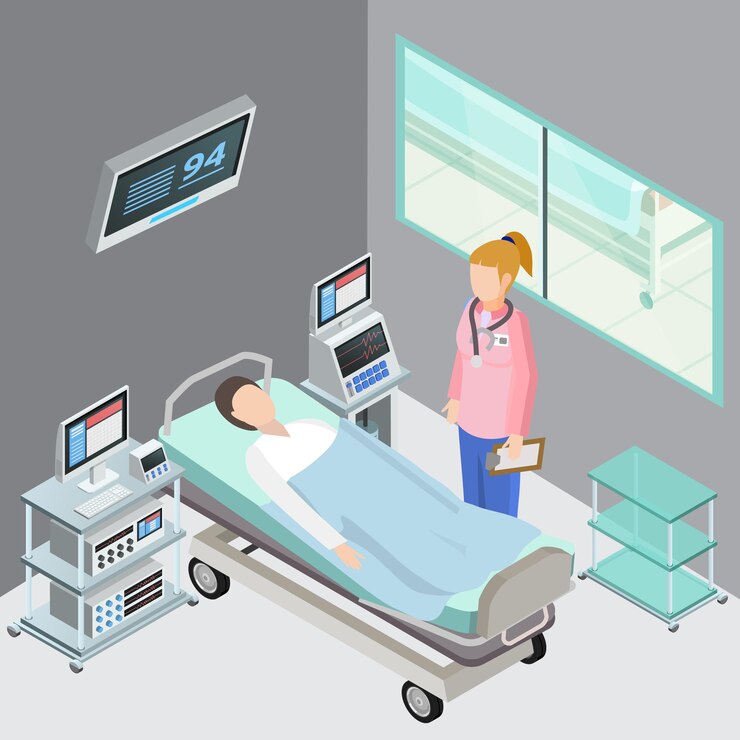
Reasons for Hospital Bed at Home
The concept of providing hospital beds at home has gained significant traction in recent years. As the healthcare landscape evolves, more individuals are seeking alternatives that blend medical care with the comfort and familiarity of their own homes. This shift is driven by various factors, ranging from the desire for personalized care to the necessity of managing chronic conditions. Reasons for hospital bed at home? Here, we delve into the primary reasons for the increasing demand for hospital beds at home, highlighting the benefits and implications for patients, caregivers, and the healthcare system as a whole.
1. Enhanced Patient Comfort and Familiarity
One of the most compelling reasons for opting for a hospital bed at home is the unparalleled comfort it offers patients. Hospitals, despite their essential role, can often feel impersonal and stressful. This is particularly beneficial for patients with long-term illnesses who require extended periods of bed rest. Being in a familiar setting can positively impact their mental health, which is crucial for overall recovery and quality of life.
2. Personalized Care
In a hospital setting, healthcare professionals are often stretched thin, attending to multiple patients simultaneously. At home, caregivers can focus exclusively on the patient, ensuring their specific medical and emotional needs are met. This one-on-one attention can lead to more effective treatment and a faster recovery process.
3. Infection Control
Hospitals, by their nature, are breeding grounds for infections. Hospital-acquired infections (HAIs) pose a significant risk to patients, particularly those with weakened immune systems. By receiving care at home, patients can avoid exposure to these potential pathogens. The home environment, controlled and familiar, can be kept cleaner and more sanitary, reducing the risk of infections and complications associated with hospital stays.
4. Cost-Effectiveness
Healthcare costs are a growing concern for many families. Hospital stays can be exorbitantly expensive, with costs accumulating for room, board, medical procedures, and other associated services. While the initial setup for a hospital bed and necessary medical equipment might require an investment, the ongoing costs are often lower compared to prolonged hospital stays. This makes home care a financially viable option for many families.
5. Family Involvement and Support
Having a hospital bed at home allows for greater involvement of family members in the patient’s care. Family support is crucial for emotional well-being and can significantly enhance the healing process. The presence of loved ones can provide comfort and encouragement, helping patients cope better with their conditions. Moreover, family members can be trained to perform basic caregiving tasks, which not only eases the burden on professional caregivers but also fosters a sense of empowerment and involvement in the patient’s care journey.
6. Flexibility and Convenience
Hospital schedules can be rigid, with fixed visiting hours and routines. At home, care routines can be adapted to the patient’s preferences and daily lifestyle, providing a more comfortable and accommodating experience. This flexibility can lead to improved adherence to treatment plans and medications, as patients are more likely to follow routines that fit seamlessly into their daily lives.
7. Management of Chronic Conditions
For patients with chronic conditions such as heart disease, diabetes, or respiratory issues, long-term management is often required. Hospital beds at home can facilitate better management of these conditions. Regular monitoring, timely medication, and consistent care can be provided without the need for frequent hospital visits. This continuous care model can prevent exacerbations and reduce the need for emergency interventions, improving the patient’s quality of life and overall prognosis.
8. End-of-Life Care
For patients in the final stages of life, a hospital bed at home can provide a more dignified and peaceful end-of-life experience. Palliative care in a familiar environment allows patients to spend their remaining days surrounded by loved ones, in a setting that offers comfort and solace. This can be immensely beneficial for both the patient and their family, providing a sense of closure and emotional support during a challenging time.
9. Rehabilitation and Recovery
Post-surgical patients or those recovering from major illnesses often require extended periods of bed rest and rehabilitation. A hospital bed at home can facilitate this process, allowing patients to recuperate in a stress-free environment. With the right medical equipment and professional support, patients can undergo physical therapy, wound care, and other necessary treatments at home, promoting faster and more effective recovery.
10. Technological Advancements
Advancements in medical technology have made it easier to provide hospital-level care at home. From portable medical devices to telehealth services, patients can now receive comprehensive care without the need to be physically present in a hospital. Remote monitoring and virtual consultations enable healthcare professionals to keep track of the patient’s condition and provide timely interventions when needed. This integration of technology in home care enhances the quality of care and ensures that patients receive the medical attention they require.
Conclusion
At Penta Surgicals, the decision to use a hospital bed at home is driven by a combination of personal, medical, and financial considerations. The benefits of enhanced comfort, personalized care, infection control, cost savings, and family involvement make home care an appealing option for many patients. As healthcare continues to evolve, the trend toward home-based care is likely to grow, offering patients a compassionate and effective alternative to traditional hospital stays. The integration of technology and the focus on patient-centered care will further enhance the feasibility and attractiveness of home care, paving the way for a more holistic and patient-friendly healthcare system.


